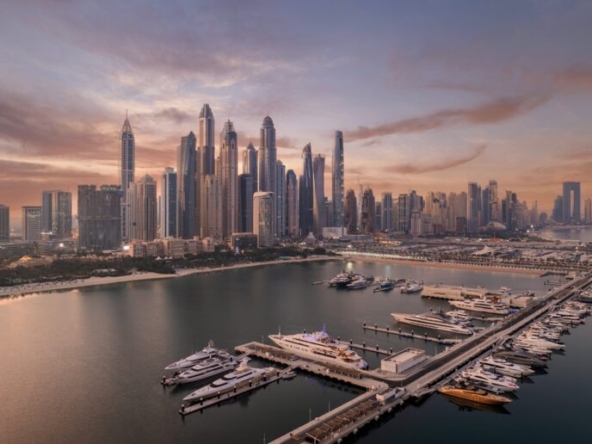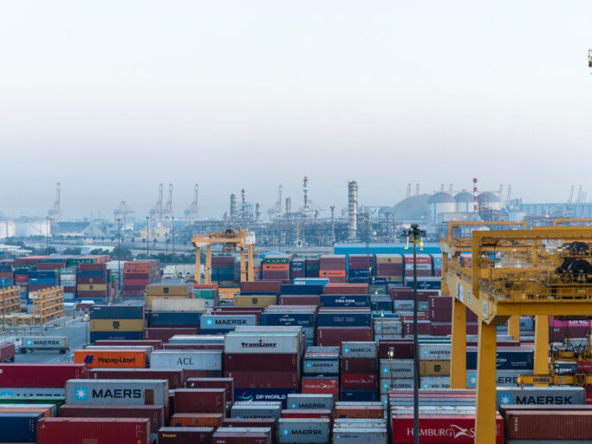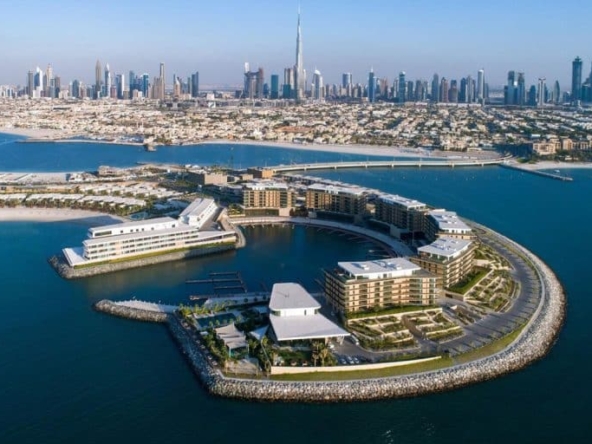The Dubai property market has entered a pivotal phase in Q3 2025, where rapid growth meets sustainable stability. Following a record-breaking two years of real estate expansion, the sector now shows clear signs of maturity, driven by strategic urban planning, increased foreign investment, and robust end-user demand. As the city evolves into a global business and luxury hub, understanding the trends shaping Dubai’s property landscape is crucial for both investors and developers.
A Strong Foundation: Dubai’s Real Estate Growth in Perspective
Dubai’s real estate market has long been synonymous with ambition, innovation, and resilience. In Q3 2025, the market continues to thrive due to several critical factors:
-
Foreign direct investment (FDI) continues to flow into the emirate, supported by investor-friendly policies and long-term residency programs like the Golden Visa.
-
Sustainable development initiatives have strengthened buyer confidence, particularly in eco-conscious projects across Dubai South, MBR City, and Expo City.
-
The population boom, driven by international talent and entrepreneurs relocating to Dubai, has spurred demand across both luxury and affordable segments.
This unique combination of growth drivers reflects Dubai’s transformation from a speculative property market to a mature, end-user-driven ecosystem.
Q3 2025 Market Overview: Steady Growth and Stabilizing Yields
Data from leading real estate analysts reveals that Dubai’s Q3 2025 performance remains strong despite the global economic slowdown. Average property prices increased by 6.8% quarter-on-quarter, marking the 12th consecutive quarter of growth.
Residential Segment
-
Luxury villas in communities like Palm Jumeirah, District One, and Dubai Hills Estate continue to command premium prices, driven by limited supply and high global demand.
-
The apartment market, particularly in Business Bay, Downtown Dubai, and Jumeirah Village Circle (JVC), recorded a steady 5% price growth, fueled by end-user purchases rather than speculation.
-
Rental yields have stabilized between 6% to 8%, making Dubai one of the most profitable global property markets.
Commercial and Mixed-Use Properties
Dubai’s office and co-working spaces are witnessing a revival as international firms re-establish regional headquarters in the emirate. Flexible leasing models and hybrid workspace demand have redefined the commercial real estate segment.
Foreign Investors Continue to Dominate
Dubai remains a magnet for international property buyers. Q3 2025 saw record investments from European, Indian, Chinese, and GCC buyers, with Russians and Britons maintaining their dominance in the high-end segment.
The introduction of digital real estate transactions, blockchain-based title deeds, and simplified remote ownership verification has further boosted investor trust. The Dubai Land Department (DLD) reported a 20% increase in cross-border transactions compared to the same period in 2024.
Additionally, tax advantages, no capital gains, and 100% foreign ownership rights continue to make Dubai an unparalleled investment destination.
Sustainability and Smart Living Drive New Demand
The maturity of Dubai’s property market is reflected in its shift toward sustainability and technology integration. Developers are no longer competing on scale alone but on eco-friendly design, smart infrastructure, and community well-being.
Green Developments Leading the Way
Projects such as The Sustainable City, Expo Valley, and Dubai Creek Harbour highlight the emirate’s commitment to net-zero living. Features like solar panels, water recycling systems, and EV charging stations are becoming standard across new developments.
Smart Homes and Digital Integration
The adoption of IoT-based property management systems, AI-powered security, and energy optimization tools has elevated Dubai’s status as a global pioneer in smart urban living.
These trends resonate particularly well with millennials and high-net-worth individuals seeking long-term residency and lifestyle-driven investments.
The Rental Market: Demand Outpaces Supply
The rental market in Q3 2025 remains robust, with demand exceeding supply across most prime locations.
-
Mid-tier communities such as JVC, Al Furjan, and Dubai Silicon Oasis experienced double-digit rental growth due to affordability and improved infrastructure.
-
Luxury rentals in Downtown, Bluewaters Island, and Dubai Marina remain in short supply, leading to higher yields for landlords.
-
The increase in digital nomads and remote workers under Dubai’s long-term visa schemes continues to strengthen the rental sector.
According to property consultancy reports, occupancy rates in premium residential towers reached 95%, underscoring Dubai’s resilience amid global market volatility.
Government Policies Fuel Confidence
The Dubai government’s pro-business stance remains central to real estate confidence. Initiatives such as revised foreign ownership laws, 10-year visas, and the Dubai 2040 Urban Master Plan have bolstered investor optimism.
The Dubai 2040 Vision aims to make the city one of the world’s best places to live and work, with 60% of its land dedicated to natural reserves and recreational areas. This long-term vision ensures sustainable real estate development, appealing to both investors and residents seeking quality of life and financial returns.
Emerging Hotspots in Q3 2025
Several neighborhoods have gained significant traction in Q3 2025 due to infrastructure upgrades and new project launches:
-
Dubai South: The proximity to Al Maktoum International Airport and Expo City has made it a hotspot for both investors and end-users.
-
Dubai Creek Harbour: Offers waterfront luxury with panoramic skyline views and sustainable architecture.
-
Arjan and Dubailand: Affordable alternatives for first-time buyers and young families seeking value-for-money properties.
-
Jumeirah Village Circle (JVC): Continues to grow as a favorite among mid-income professionals and short-term rental investors.
These zones collectively reflect Dubai’s diverse investment ecosystem catering to every price segment.
Forecast for Q4 2025 and Beyond
Market analysts predict continued price appreciation of 5–7% through the end of 2025, supported by ongoing supply constraints and investor confidence. However, developers are expected to adopt a measured approach to avoid oversupply.
The integration of AI-driven real estate analytics, smart contracts, and virtual property tours will further enhance transparency and investor participation. Additionally, the upcoming World Free Zone Expo 2025 is likely to attract new international investors, fueling demand across both residential and commercial segments.
Conclusion: Dubai’s Market Finds Balance Between Ambition and Stability
The Dubai property market in Q3 2025 demonstrates a remarkable balance between momentum and maturity. With strong economic fundamentals, proactive governance, and a clear vision for sustainable development, Dubai continues to strengthen its position as the world’s premier real estate destination.
As the market evolves, both investors and residents can expect long-term stability, technological innovation, and consistent growth, marking Dubai as not just a city of opportunity—but one of enduring value.



